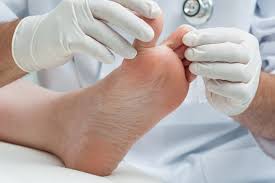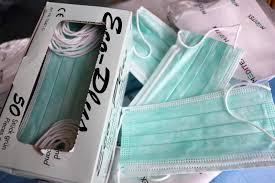
The Importance of Foot Care for Diabetics
Did you know diabetes can be harmful to your feet? Even the smallest cut can have serious consequences. Because diabetes may cause nerve damage that takes away the feeling in your feet and can reduce the blood flow to your feet, an injury may go unnoticed and harder for to heal or resist infection. Developing a blister or a sore could lead to an infection or a nonhealing wound, which puts you at risk for an amputation. The best way to avoid serious foot problems and the possibility of amputation is to follow these guidelines. Inspect your feet daily. Check for cuts, blisters, redness, swelling or nail problems. Use a magnifying hand mirror to look at the bottom of your feet. Call your doctor if you notice anything unusual. Get a full foot exam by a podiatrist at least once each year. Know when and who to call with specific foot problems. Patients with a puncture wound, ulcer, redness, or new foot pain should call and see their primary care provider or podiatrist as soon as it occurs. Patients with calluses and/or thick or ingrown nails should see a podiatrist within a few days. Keep walking spaces clear (especially around the bed and the path to the bathroom), by using nightlights, and wearing properly fitted shoes. Bathe your feet in lukewarm, never hot, water. Keep your feet clean by washing them daily. Lukewarm is the temperature you would use on a newborn baby. Be gentle when bathing your feet. Wash them using a soft washcloth or sponge. Dry by blotting or patting and carefully dry between the toes. Moisturize your feet Use a moisturizer daily to keep dry skin from itching or cracking. But don’t moisturize between the toes because that can lead to a fungal infection. Cut toenails carefully. Cut them straight across and file the edges. To avoid ingrown toenails, do not cut them too short. If you have concerns about your nails, consult your doctor. Never treat corns or calluses yourself. Do not perform “bathroom surgery” or use medicated pads. Visit your doctor for appropriate treatment. Wear clean, dry socks. Change them daily. Consider socks made specifically for patients living with diabetes. These socks have extra cushioning, do not have elastic tops, are higher than the ankle and are made from fibers that wick moisture away from the skin. Wear socks to bed. If your feet get cold at night, wear socks. Never use a heating pad or a hot water bottle. Shake out your shoes and feel the inside before wearing. Remember, your feet may not be able to feel a pebble or other foreign object, so always inspect your shoes before putting them on. Keep your feet warm and dry. Don’t let your feet get wet in snow or rain. Wear warm socks and shoes in winter. Never walk barefoot. Not even at home! Always wear shoes or slippers to prevent you from getting a scratch or cut. Manage your diabetes. Keep your blood sugar levels under control. Do not smoke. Smoking restricts blood flow in your feet. Have your feet checked at every medical health care appointment Take your shoes and socks off and ask your providers to examine your feed.
If your primary care doctor has not talked to you about the importance of proper foot care or taught you how to do a daily foot exam, talk to him/her about it as soon as possible



